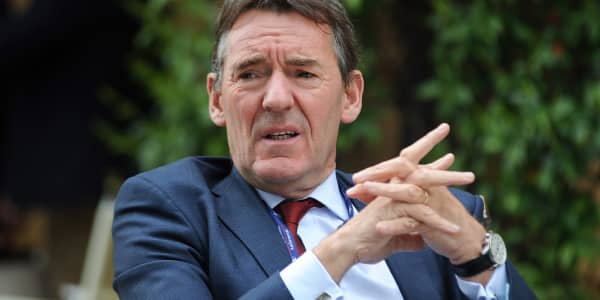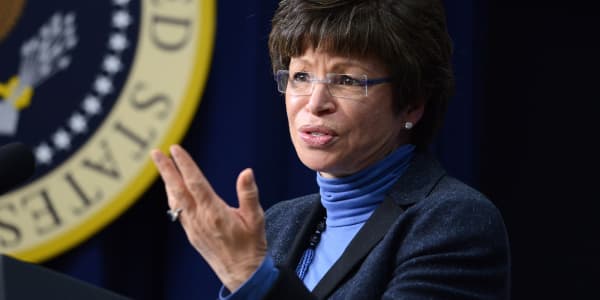In Nassim Taleb's view, the root causes of the financial crisis have not been fixed. From Larry Summers' perspective, policy makers did what they had to do to contain a problem that had no easy answers.
The two presented their opposing views during a lively exchange Thursday that showed the debate over what happened and should have happened in 2008 and 2009 is far from settled.
"When you have a crisis of the kind we had, the policies were very good policies as painkillers to try to control the damage and stop the bleeding, but it did not address the cancer," said Taleb, author of multiple books including "The Black Swan" which warned in 2007 of systemic danger due to excessive risk-taking. "What is the core cancer that we have today? It is not hidden risk...(it is) lack of skin in the game by the largest class of decision makers ever in history."
The two spoke at SkyBridge Capital's SALT 2014 conference in Las Vegas.
Taleb's essential point was that those who caused the crisis—which saw some of the biggest names on Wall Street wiped out and others preserved through trillions in taxpayer-funded bailouts—didn't pay the price for their recklessness.
Read MoreAre we on the edge of another financial crisis?
Summers, a senior economic adviser both to President Barack Obama and former President Bill Clinton, disagreed with the thrust of Taleb's position.
"You way overstate the case that nobody suffered in this last round," Summers said. "If you look at CEOs of large institutions that needed to be bailed out on a large scale, they're almost in every case not CEOs of large institutions today. I think the notion that there were not consequences to any of this isn't right or isn't plausible."
Read MoreWall Street in 2039: Will it still exist?
Taleb also asserted that too-big-to-fail institutions continue to grow while excessive risk-taking is being encouraged by ultra-loose monetary policy from the Federal Reserve.
"Every time it gets bigger," he said. "We have not cured the problem. We have interest rates near zero. Bring interest rates back up and watch."
Read MoreJamie Dimon breakup one of my big mistakes: Weill
The debate roared back and forth, with Summers pressing Taleb to go beyond enunciating what he thought was wrong and instead come up with a better solution than the one used to bring the financial system off the brink after Lehman Brothers failed.
"I'm for more capital, I'm for more liquidity, I'm for more pressure from the government to have proper risk models that recognize fat tails as part of our regulatory system," Summers said. "I'm for stress testing that makes much more data available so that analysts outside of institutions can judge the risk. I'm for the development of living wills and procedures that if an institution fails it can be resolved."
"I'm not for the government designing the compensation systems of financial institutions. I'm not for the government running financial institutions," he said. "I'm for making them much more failure-proof and more safe for failure when they do fail. What are you for?"
Read MoreRogues gallery: A quarter century of financial fraud
Taleb advocated a system where banks are run more like utilities and excessive risk-taking is limited to hedge funds and investment banks.
"Let's go back to when banks were boring and were utilities and were not taking too much risk with taxpayer money," he said. "A utility should not be a casino. It's a very simple point."





